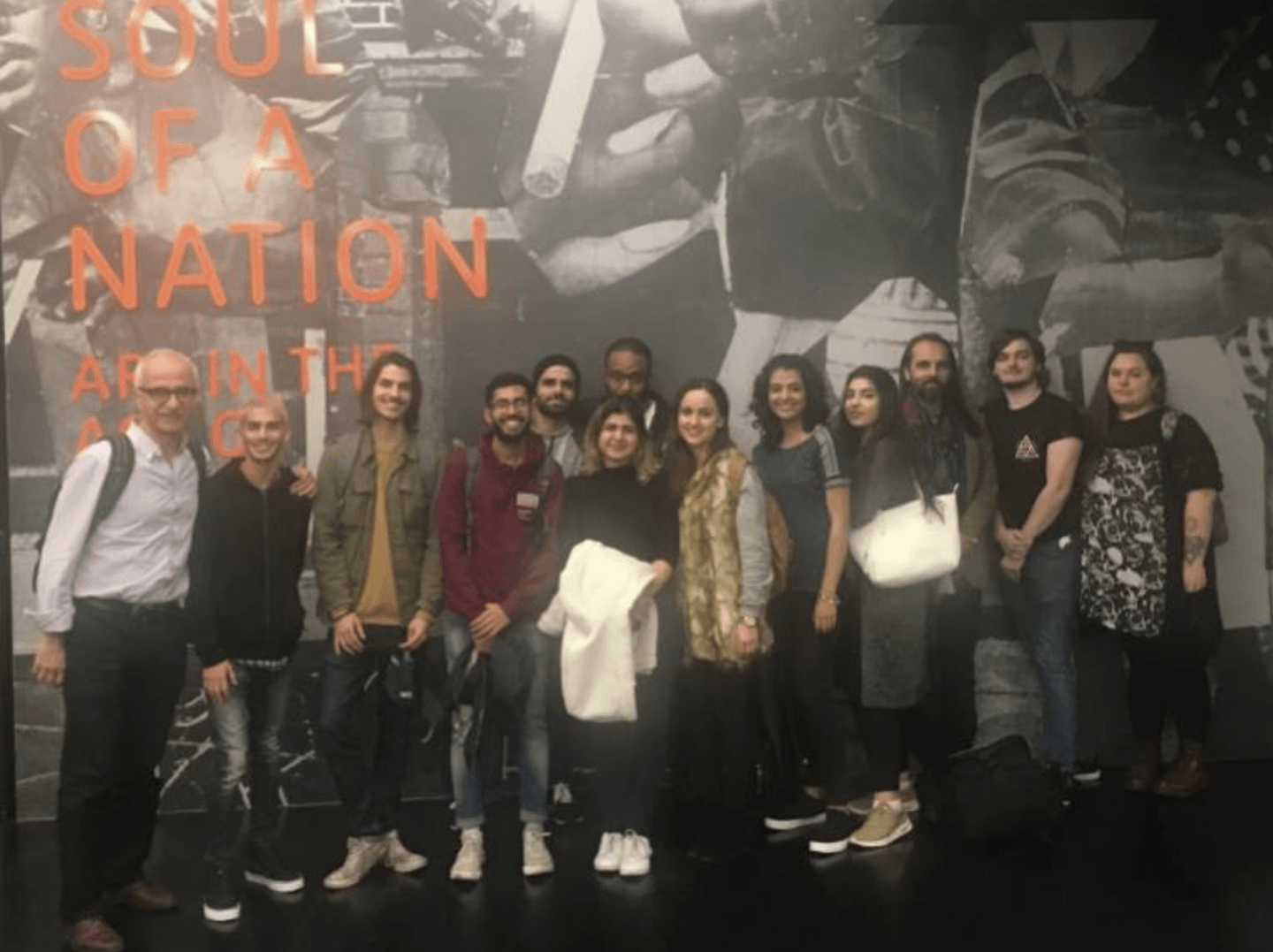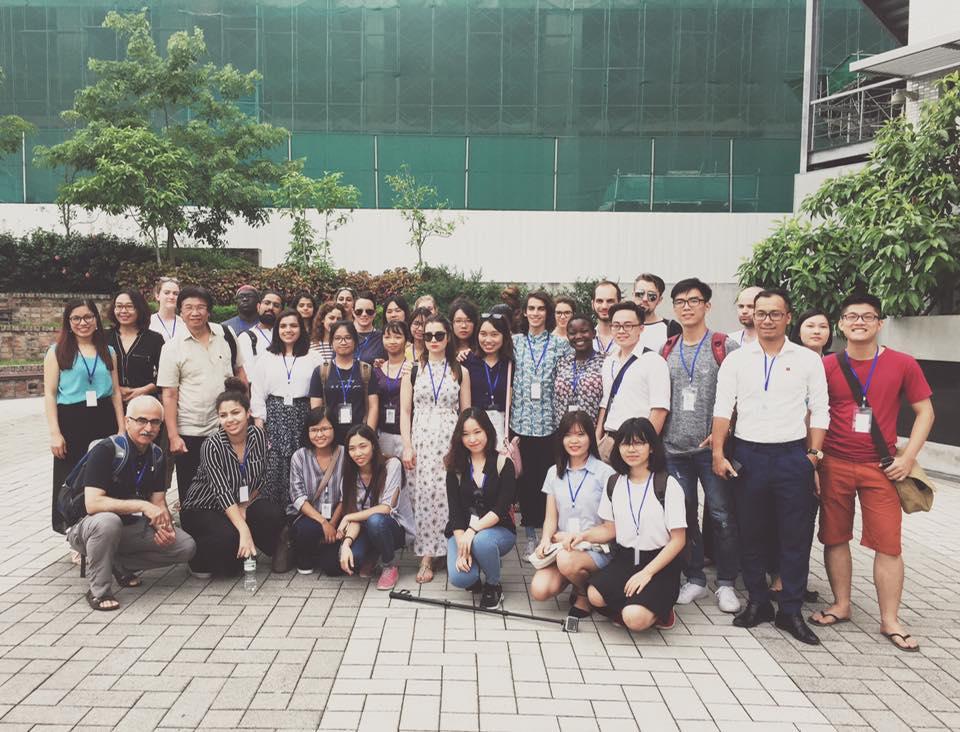It has always been a pleasure to be involved in the education process of students, whether it is teaching, sharing ideas, mentoring or supporting them. I have particularly cherished working with diverse students with various backgrounds and abilities.
Since becoming a lecturer, I have developed teaching practices that identify ways to overcome the barriers many of my students face, which I felt I could understand from my own experience of joining higher education as I emigrated from Iran to the UK.
Lived experience matters. Hence, I have encouraged students to situate in personal ways what they are learning about the larger world. I have placed students' engagement at the heart of my teaching practice.
As a lecturer in international development, my concern with the sharing and caring aspects of learning and teaching has been ongoing throughout my professional life. I don’t always get it right, but I am open to learning, reflecting and changing. I am convinced that it is one's own experience that inevitably forms the foundation and background of our perspective on the world and the knowledge we can usefully acquire.
Throughout my teaching career, I looked for a model in which students are not simply the recipients of information but work together and collaborate with academics in their education process. I saw the students' role in education as what Freire describes as one of "co-investigators in dialogue with the teacher" (Freire, 1970: 81).
Using this approach, I have undertaken various initiatives and collaborations within the University of Westminster, developing my teaching through a model of education that is accessible, inclusive and diverse. In 2016, I secured funding from a Quintin Hogg Trust for Democratic Education Network (DEN).
As one student defines it:
"DEN is a collaborative group run mainly through students that oversee the operation of several...projects. By fostering teamwork, creative visions and proactivity, DEN provides a platform for people with various interests to grow together and turn ideas into action."
This helped DEN to build an umbrella under which we could bring together a community of educators and learners, facilitating engagement through a collaborative approach. We attracted students to write for DEN’s online magazine, insidewestminster, book, working with local refugee communities, and organising workshops, conferences, and field trips to Georgia, Peru, Thailand, Turkey, Vietnam and Uzbekistan.

The students worked together, supported by academics, on various projects, according to their own interest. By encouraging them to express their creativity in making art, managing events, public speaking or supporting their local public partners, we built a bigger community of mutual support and respect.
One student recalls:
"Our strengths, as well as our weaknesses, are exposed as we proceed with this project. The meetings form a melting pot of personalities, even when the workload is vast and the time minimal. The calmness in some helps to bring out the creativity of others and helps us as an organisation to develop new skills and knowledge."
DEN’s work with various minoritised ethnic communities in London has provided students with leadership that rapidly developed into effective partnerships. We arranged for some of our undergraduate students to provide tutoring in literacy and numeracy to recent immigrants in London. Perhaps because of the diverse backgrounds of students at Westminster, the work of building links with local minority ethnic community groups seemed to happen quite naturally.
My personal vision of building an international aspect of DEN led me to approach some academic colleagues in Georgia, Peru, Thailand, Turkey, Uzbekistan and Vietnam. Working with them, we designed field trips for students. Apart from team building and collaborating between the students and staff in different countries, it was also significant in developing a bridge between local communities in London and countries such as Turkey and Vietnam. We then integrated the field trip into the curriculum; we designed second-year undergraduate module, Learning in an International Environment, with optional field trips to Turkey and Vietnam.
The central and pivotal part of DEN was the annual International Students Conference, in which we sought to bring together students from further education, higher education, international partners and London communities. DEN has hosted several International Students Conference at the University of Westminster.

Following on from the success of the conferences, we decided to work with the students to publish the conference proceedings. We organised a workshop, with the help of several of our alumni, to facilitate this. We trained students in editorial skills, reviewed and presented articles and provided feedback on individual students’ papers. For example, during the Covid-19 pandemic, we worked online to publish a book on the current condition, ‘The Unprecedented Impacts of COVID-19 and the Global Responses.’
DEN has developed a new dimension of student inclusion, engaging them, encouraging their enjoyment of learning in a healthy, flexible and supportive environment. As one student expressed,
"What I enjoyed most about DEN was getting the opportunity to work with some incredible people, both peers and university staff who provide constant support and guidance. It was an amazing and memorable experience meeting such inspirational people and working alongside them to create something that speaks to many others."
In a blog about me, I have written more about the students and DEN. This reflects my personality. I put students ahead of myself. I am proud to work with students from diverse backgrounds who have used their creativity, passion, imagination and organic leadership to make DEN central to teaching, learning and overall university experience for our Westminster community. DEN evidences how community building can support a more inclusive education through student empowerment.
Dr Farhang Morady is the Principal Lecturer in International Development and the author of Contemporary Iran: Politics, Economy, Religion, Bristol: Policy Press.
He is also the Academic Director of the Democratic Education Network (DEN) at the University of Westminster. DEN is a student/staff- initiative that has built links with diverse ethnic communities in London and various global partners including Georgia, Peru, Thailand, Turkey, Vietnam and Uzbekistan.
Find out more about the 2022 winners of the National Teaching Fellowship Scheme and Collaborative Award for Teaching Excellence.